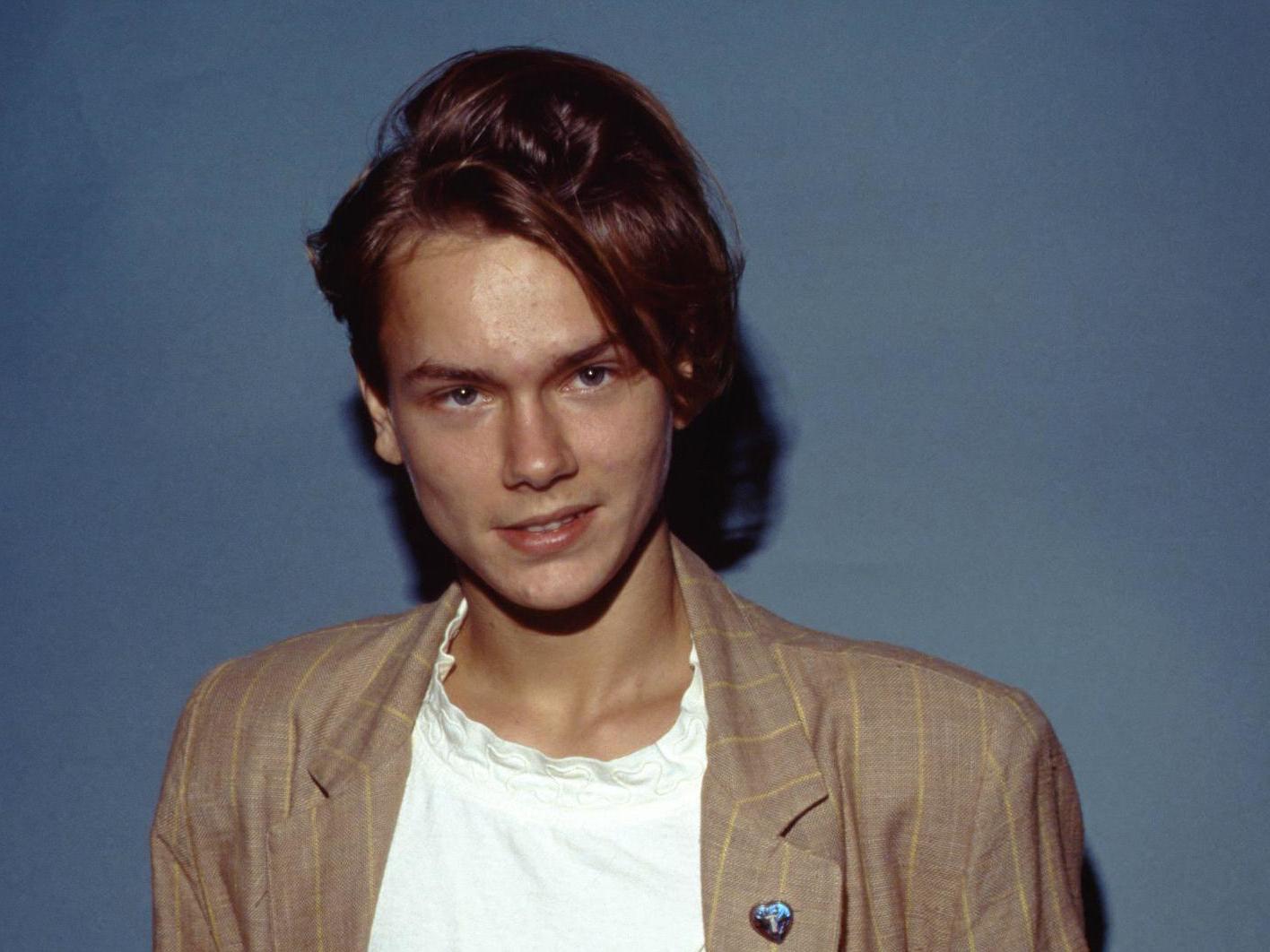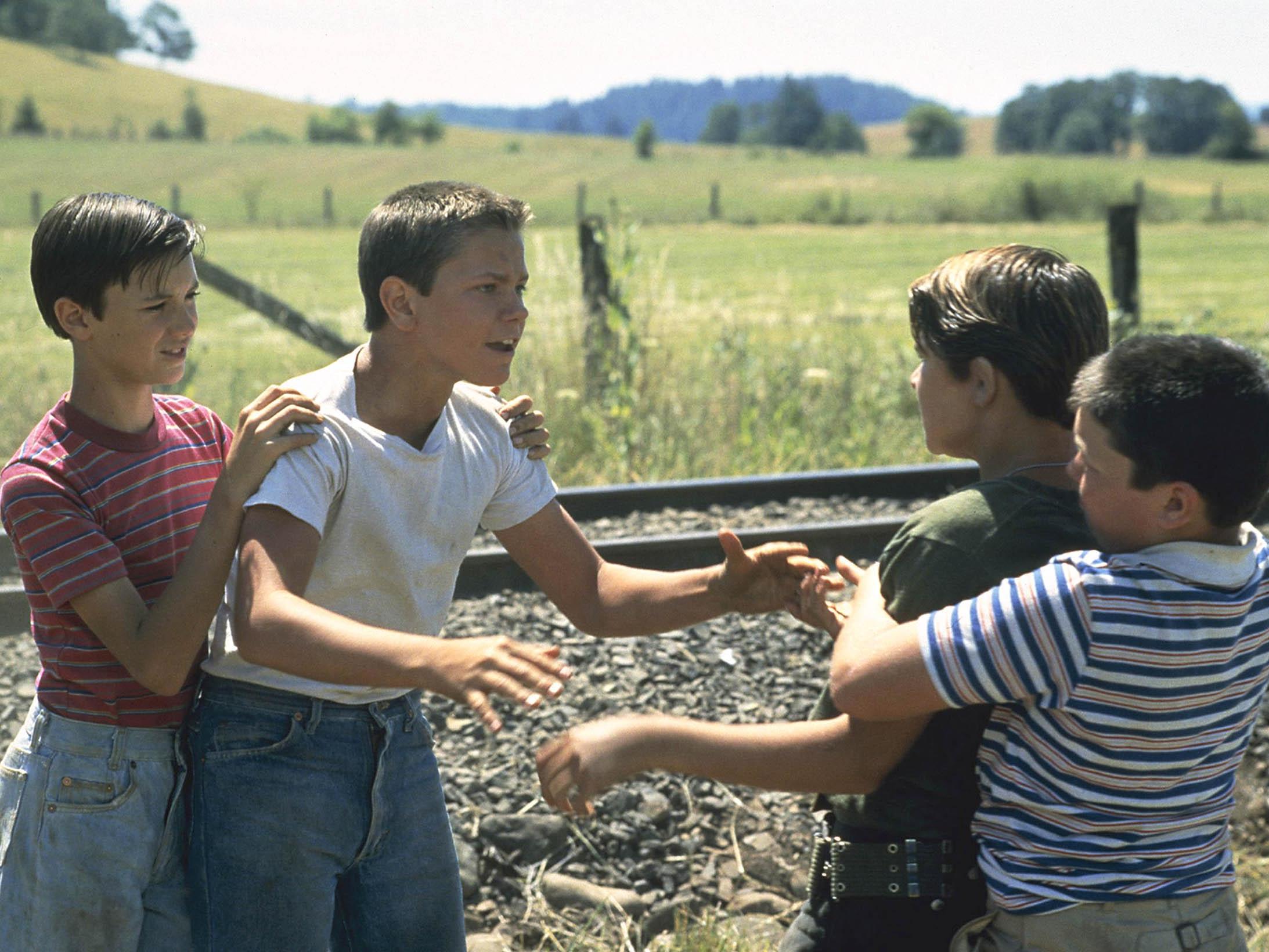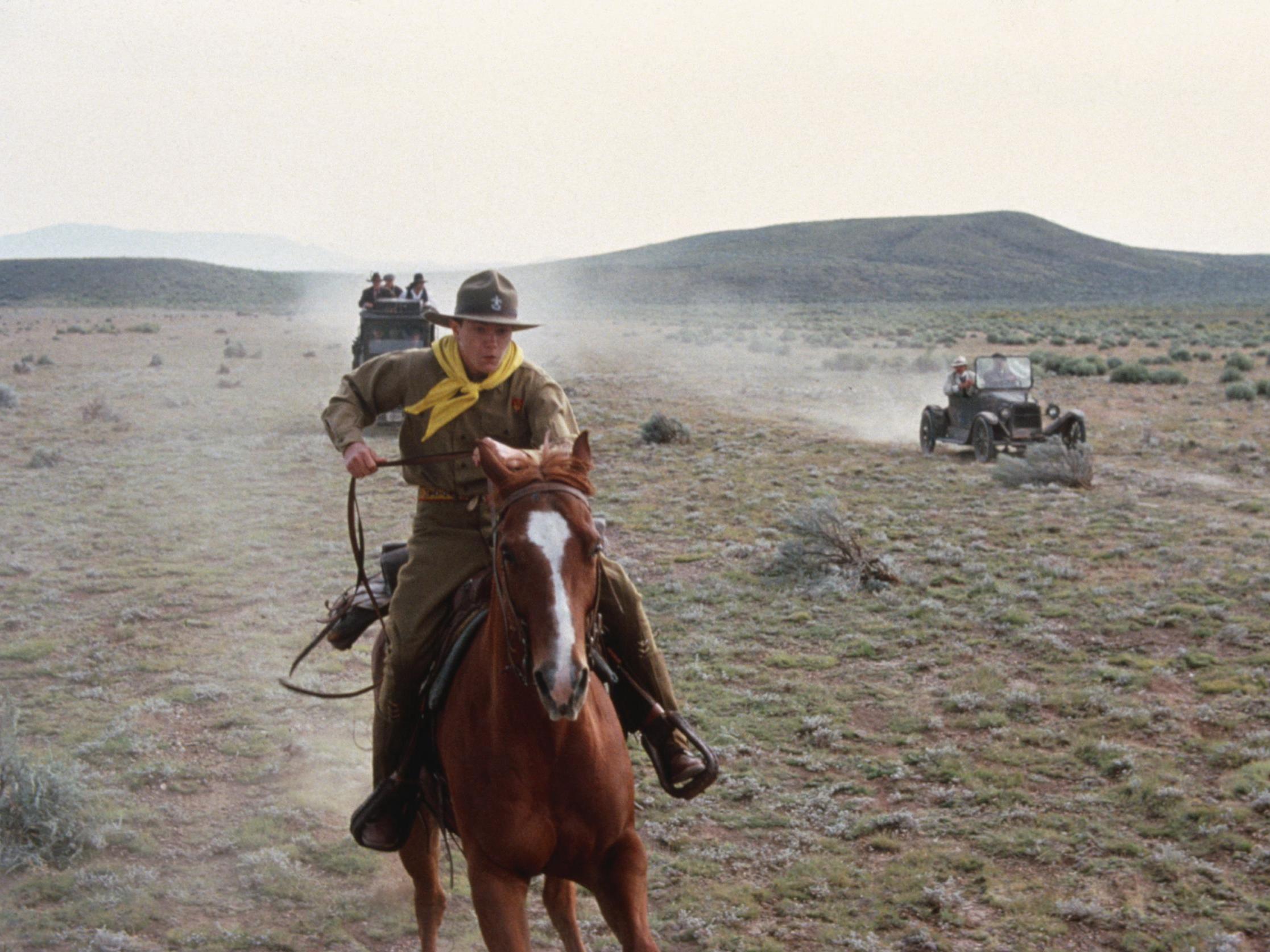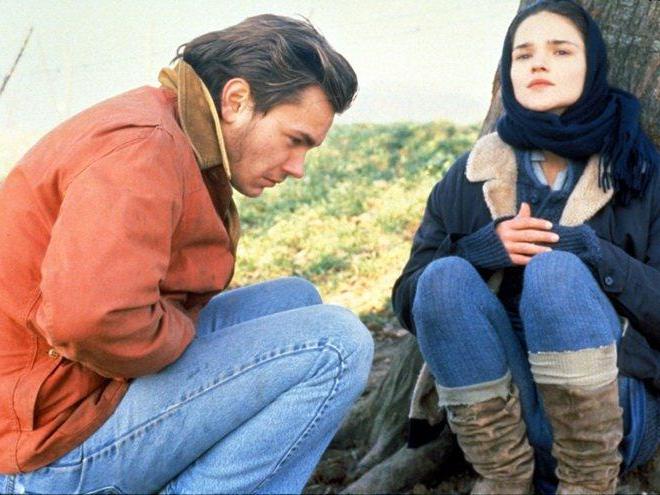Stand by me: The cinematic legacy of River Phoenix
The actor would have turned 50 today but all too often the focus is on his untimely death rather than his contributions to the screen. Louis Chilton looks back at why his precocious talent is still the benchmark for young Hollywood


River Phoenix may have been destined to be a great actor, but he didn’t necessarily see it that way. When he first started in show-business – as a child of clearly precocious talent – his goal was to make it as a musician. He would enjoy a modest amount of success in that sphere with his band Aleka’s Attic, bolstered by the fame Hollywood brought him. To pretty much everyone else, however, it was clear his fate lay in the flicker and awe of a cinema screen.
Today would have been Phoenix’s 50th birthday had he not died, tragically and publicly, before reaching even half that age. A death like Phoenix’s can be all-consuming; ugly sensationalism in the immediate aftermath has given way to a kind of shallow mythologisation. But the story of Phoenix’s death does not contain the story of his life. His work survives to speak for itself: there’s a reason that every young male actor from Leonardo DiCaprio to Heath Ledger has been held up to Phoenix’s gold standard. In a career that barely lasted a decade, he had inhabited a small handful of roles that touched countless people, and for generations to come.
Phoenix grew up without a formal education. He was born in 1970 into an unconventional family of pseudo-hippies, who joined a cult in South America when he was just three years old. Leaving the cult (The Children of God, a highly controversial outpost of supposed Christians that was labelled a sect by the FBI) at the end of the decade, the Bottom family moved back to the US and, in a poetic statement of intent, renamed themselves Phoenix. They ended up in LA, where Phoenix and his siblings were spotted by talent agent Iris Burton while busking on a street corner.
He would come to express unease with the work this initially brought – TV advertisements for products like Ocean Spray cranberry juice – saying he had fallen into commercials for “financial reasons”. However, the commercials made acting in film and TV shows seem like an “attractive concept” and, at the age of 12, he landed his first TV gig as a regular on the short-lived reboot of Seven Brides for Seven Brothers.

Phoenix’s first film role came in Explorers, an affably far-fetched sci-fi romp, opposite a young Ethan Hawke, who recounted how his co-star was “a serious young artist, even at 14”. Phoenix planned his characterisation to the smallest detail. “We’re doing this movie about kids going on a spaceship,” said Hawke, “and he’s trying to talk about what’s in his character’s pockets. You knew right away he was special.”
Phoenix drew no small amount of acclaim during his time as a young actor, but nothing compared to his breakout role as troubled child Chris Chambers in the 1986 Stephen King adaptation Stand by Me. Chambers was a character who hid his pain behind coolness and bravura and Phoenix was tremendous as he finally breaks down; the rest of the roundly great cast were acted off the screen by the display of raw, complicated emotion. But the role clearly took its toll. The actor would later say: “I identified so much with the role of Chris Chambers that if I hadn’t had my family to go back to after the shoot, I’d have probably had to see a psychiatrist.”
In his best work, River Phoenix revealed vulnerability and dysfunction quietly, with a deeply affecting naturalism. His was a distinctly modern style of acting, less mannered than most of his forebears, such as James Dean, to whom he would often be posthumously compared. But that’s not to say he lacked discipline or dedication to the craft. Kiefer Sutherland, who played Stand By Me’s villain, remarked that Phoenix “was the one who would call you every night and go ‘do you mind running over lines for this scene?’”.
Over the course of his short career, Phoenix worked with a list of directors that would be the envy of many industry veterans, among them Peter Weir, Sidney Lumet, Steven Spielberg, Peter Bogdanovich and Rob Reiner. He would share the screen with some of the biggest actors of the 20th Century, including Sidney Poitier, Robert Redford and Harrison Ford, stealing scenes from many of them. When Phoenix was cast in 1989’s Indiana Jones and the Last Crusade – as a younger version of Ford’s whip-cracking hero, no less – he was well on his way to becoming a household name. Such was his profile that Phoenix’s role was kept totally hush-hush; Young Indy was referred to in the script simply as “Boy on Train”. Once word of his involvement leaked, LucasFilm circulated a rumour that Phoenix was in fact playing the brother of Ford’s character.
He won the admiration of many a big actor, too. John Baxter’s biography of Steven Spielberg suggests that during production of The Last Crusade, Phoenix was “warned never to imitate Ford’s mannerisms on screen”, a wise move, as divisive Solo star Alden Ehrenreich might attest. Baxter also claims that Phoenix was discouraged from suggesting “he had any interest in taking over the Indy role”, in order to “allay Ford’s fears that Phoenix might steal the movie”. These claims don’t chime with Ford’s public support of Phoenix, however. The Star Wars star reportedly suggested him for the role in the first place, having worked with him previously in 1986’s The Mosquito Coast. After Phoenix’s death, when Hollywood was still in a state of shock, Ford was one of the first to pay tribute. “He played my son once,” he said, “and I came to love him like a son, and was proud to watch him grow into a man of such talent and integrity and compassion.”

Watch Apple TV+ free for 7 day
New subscribers only. £9.99/mo. after free trial. Plan auto-renews until cancelled.
ADVERTISEMENT. If you sign up to this service we will earn commission. This revenue helps to fund journalism across The Independent.

Watch Apple TV+ free for 7 day
New subscribers only. £9.99/mo. after free trial. Plan auto-renews until cancelled.
ADVERTISEMENT. If you sign up to this service we will earn commission. This revenue helps to fund journalism across The Independent.
By the early 1990s, Phoenix was producing some of his finest work, as a young marine in Nancy Savoca’s 1991 film Dogfight, and as a narcoleptic sex worker in Gus Van Sant’s My Own Private Idaho that same year. The latter of these films proved a watershed moment for Phoenix, and the film a classic of queer and independent cinema. Phoenix’s role was more than just acting; he was instrumental in shaping the character, and was largely responsible for the lauded campfire scene, in which his character confesses his unrequited love for his companion, Scott (Keanu Reeves).

“He was sort of like a Kennedy,” said Van Sant, while giving a talk on the movie in 2016. Like JFK, Phoenix was involved and proactive. “If he saw some trouble, he would get involved in the middle of it, and try and negotiate or try and help the situation. I think he was very excited that he could control the destiny of his character.”
Phoenix was no method actor, but he spent untold time researching his roles. His preparation for My Own Private Idaho involved hours of interviews with real-life sex workers (some of which can be watched on YouTube). Co-star Udo Kier recalled a time when Phoenix coaxed him into interviewing some local prostitutes while he covertly listened in. “River was sitting in a corner with his sunglasses and his beautiful hair, just listening. I was interviewing the boy and of course I had experience, so it wasn’t difficult for me to ask: what was the worst thing he’d ever had to do? River needed it for his performance. He needed to know about this. For somebody to go that far... it was amazing.”
Not only was Phoenix a talented craftsman, he was a teen idol whose good looks and sensitive, vaguely spiritual persona made him a perfect magnet for fandom. That sensitivity wasn’t an affectation: his Stand by Me co-star Wil Wheaton described him as “this raw, emotional open wound all the time. He felt everything. It’s what made him such a wonderful actor.”
Weir, who directed Phoenix in The Mosquito Coast, said: “He was obviously going to be a movie star. People who know film – me, Harrison [Ford], my wife – could see that River had something else. It’s something apart from acting ability. Laurence Olivier never had what River had.”
His output in the two years after My Own Private Idaho included the 1992 comedy Sneakers, which placed Phoenix alongside Redford, Ben Kingsley and Poitier (for the second time), and the poorly received The Thing Called Love. If the pressures of fame were starting to impact Phoenix’s wellbeing, he didn’t let it show: the picture painted by Sneakers’ director Phil Alden Robinson is one of professional diligence. “Phoenix cared deeply about his craft,” he later said. “He loved to take chances. He loved to dig deeper and push harder.”

When Phoenix died, of a drug overdose outside a Hollywood nightclub on 31 October 1993, the media was quick to fixate onto the lurid details. The fact that he had been able to shield his addictions from the public eye only made the disclosure more shocking; even now, his sad and public end sometimes tends to colour his legacy on the screen.
But not always. The most potent tragedies are the ones Phoenix himself created, seen in the characters whose lives he imbued with such soulful torment. He rises above the ranks of the Hollywood might-have-beens because we could see exactly what he already was; even as a teenager, he shone with not just talent but application, that rare accomplished power that comes only with the Hollywood greats.
At the Oscars earlier this year, when Joaquin Phoenix was collecting his Best Actor statuette for Joker, he fought back tears as he said: “When he was 17, my brother wrote this lyric. He said: ‘Run to the rescue with love, and peace will follow.’” Phoenix’s former bandmate Josh Greenbaum later told Rolling Stone that the full song, likely called “Halo”, was composed before Aleka’s Attic were formed. There is a “slim outside chance” that a recording of the song survives on an old cassette tape, piled among many in Greenbaum’s possession, but, he admitted, “even if it exists, I don’t know if it would play”.
“Halo” is a song we may never get to hear, one small misfortune among myriad dismal others. But it is not forgotten – and neither are his onscreen performances, a small but solid body of work that touched on the bittersweet truth of what it means to be young, and struggling.
Join our commenting forum
Join thought-provoking conversations, follow other Independent readers and see their replies
Comments
Bookmark popover
Removed from bookmarks